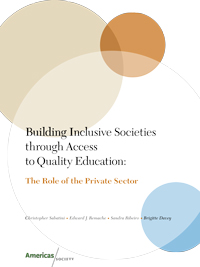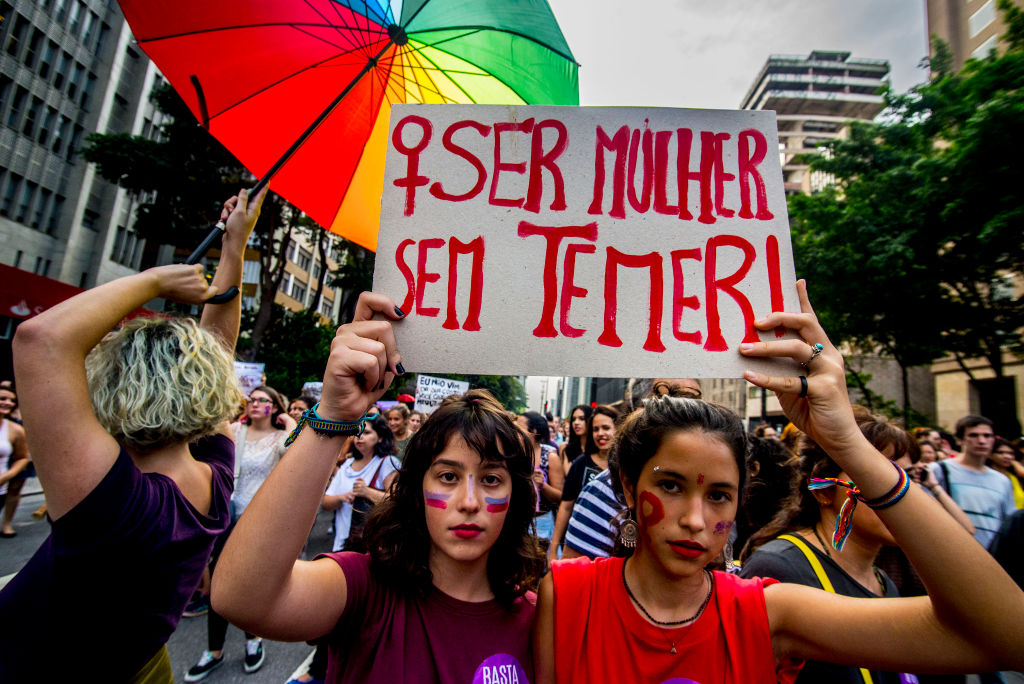Building Inclusive Societies through Access to Quality Education
Building Inclusive Societies through Access to Quality Education
A new Americas Society white paper explores public-private partnerships in education and ways to increase access to quality education for underprivileged groups. The report is part of a multi-year research initiative, funded by the Ford Foundation, focused on social inclusion in the Americas.
 The active and passive exclusion of certain income, racial, ethnic, or geographic groups from meaningful political participation and access to basic services is a problem faced in societies around the globe, with important consequences for both economic and political stability. The problem stems from the weakness of states, imperfect markets, political and economic monopolies, and, many times, the legacy of racism and marginalization. Its resolution will lie largely in innovations that recognize the root causes of exclusion and their negative consequences, and in involving and promoting fresh voices in the policy debate.
The active and passive exclusion of certain income, racial, ethnic, or geographic groups from meaningful political participation and access to basic services is a problem faced in societies around the globe, with important consequences for both economic and political stability. The problem stems from the weakness of states, imperfect markets, political and economic monopolies, and, many times, the legacy of racism and marginalization. Its resolution will lie largely in innovations that recognize the root causes of exclusion and their negative consequences, and in involving and promoting fresh voices in the policy debate.In 2010, with funding from the Ford Foundation and leveraging the relationship with its sister organization, Council of the Americas, Americas Society embarked on a research and policy initiative to investigate and promote ways in which civil society, the private sector and public policy can expand social inclusion in the Americas.
In the first year of the project, we decided to focus on access to education, access to health care, and market access for disadvantaged youth, believing that each of these sectors represents important engines of economic and social inclusion for previously excluded segments of society. This report presents the findings and conclusions of AS/COA’s research on education. The findings and reports for the other two topics (health care and market access for youth) will be released in late March 2011.
- Download Building Inclusive Societies through Access to Quality Education.
- Learn more about Americas Society's Social Inclusion program.
This report draws on examples of public-private partnerships (PPPs) in education across the hemisphere from which we derived a comprehensive set of categories defining the goals, impact, and operation of the universe of PPPs. Americas Society later conducted field research in Brazil and Peru to further understand the tactics and effects of these efforts to expand access to quality education for underprivileged groups, primarily racial minorities, and the poor.
About the AS Social Inclusion Program
With a grant from the Ford Foundation, the Americas Society is working to strengthen the voice of marginalized groups by presenting new research and promoting fresh debate on how the public and private sectors can address systemic challenges to social inclusion. In addition to health care, our efforts have focused on education and market access as key determinants of economic and social mobility. Learn more about Americas Society's Social Inclusion program.







